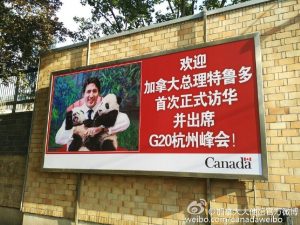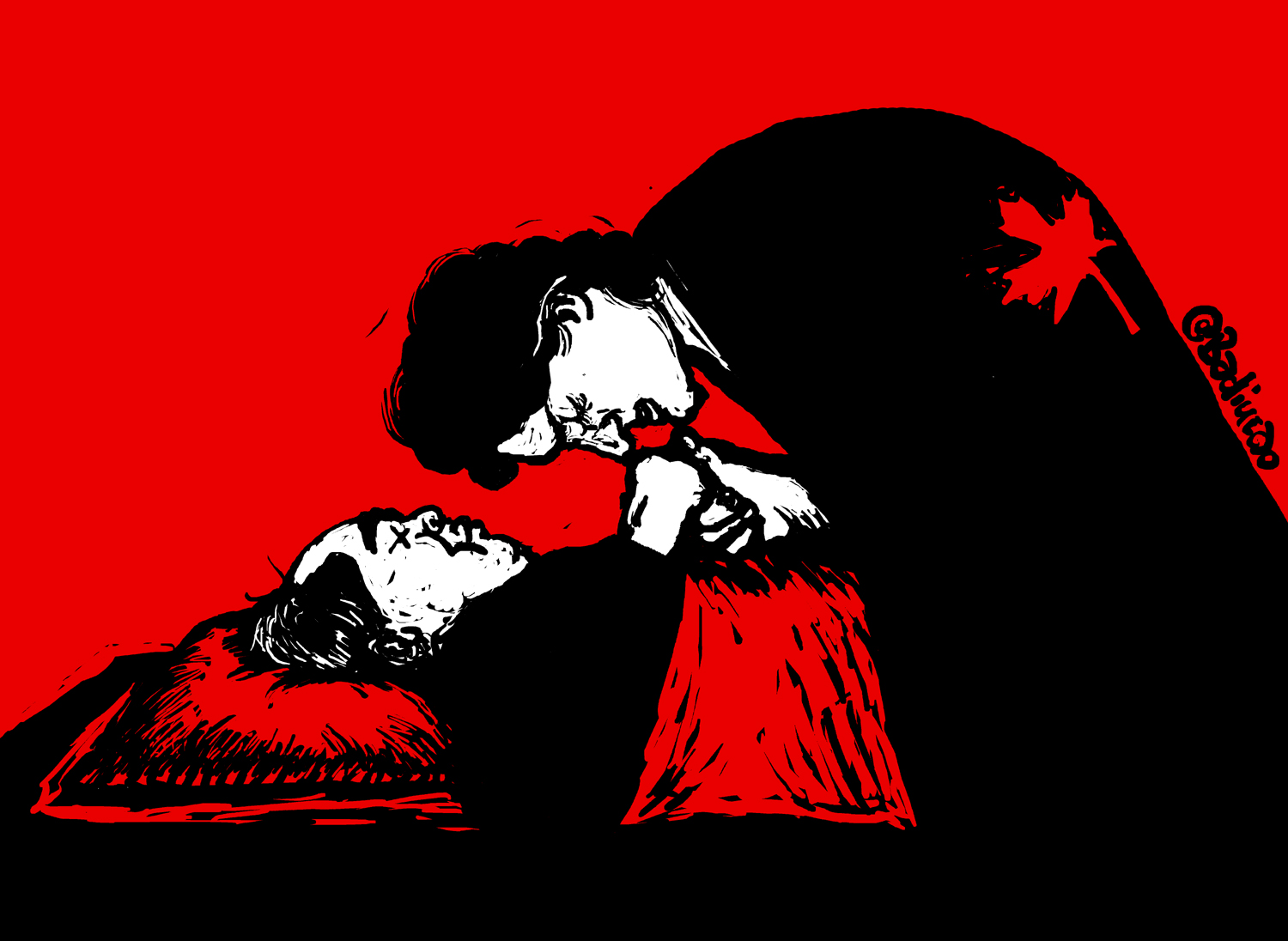Canadian Prime Minister Justin Trudeau arrived in Beijing on Monday to begin his first visit to China as the head of Canada’s government. Ahead of the trip, the Canadian press outlined the diplomatic context of the journey, which The Globe and Mail warned would be a “balancing act” between the “belief that Canada’s economic growth requires deeper ties to China’s fast-growing market and rapidly expanding middle class, and the fact that Canadians are ambivalent, even leery, about close ties to Beijing.” A separate article in The Globe and Mail noted the lingering legacy of Trudeau’s father Pierre, who oversaw the establishment of relations with the PRC during his tenure as prime minister. The Toronto Star described a row over Canadian canola oil as sure to be on the agenda, and iPolitics drew attention to Beijing’s continually poor record on human rights—a point that Chinese Foreign Minister Wang Yi drew to the global spotlight in June, when he lashed out at an iPolitics journalist who raised the topic in Ottawa.
In his latest illustration for CDT, resident cartoonist Badiucao offers his opinion on Trudeau’s visit. On Twitter, the cartoonist shared the image along with the comment, “Letz talk about money not human rights, shall we”:
Little Trudeau Visits China, by Badiucao for CDT:
Trudeau’s Conservative predecessor Stephen Harper oversaw a time of strained Sino-Canadian relations, and prior to his departure the new prime minister billed the trip as an effort to “reset” the relationship, promising to bolster economic ties while also pressing Beijing on its human rights record—a point he said Canadians “stand up strongly and clearly for.” Trudeau did offer some public comments supporting freedom of expression on Thursday, claiming also to have raised the issue in private with Xi and Li. But by then, CDT cartoonist Badiucao had lost patience, making it clear on Twitter that from his point of view, Trudeau had fallen far short of his promises:
no more bull shit! Comic heros do not deal with villains,they fight! https://t.co/2FaoLCzhO4
— 巴丢草 Bad ї ucao (@badiucao) September 1, 2016
i invite @JustinTrudeau to response this cartoon if he truly cares about humanrights in China! https://t.co/2FaoLCzhO4
— 巴丢草 Bad ї ucao (@badiucao) September 1, 2016
In a Chinese-language tweet, Badiucao said, “Canada’s celebrity prime minister, Trudeau, is in China. To date, he’s set himself up on WeChat and Weibo, and media inside the Great Firewall has been making quite a show of it all. When talking about business, he’s been all smiles, but he’s fallen short on talking about human rights. These days, talking about human rights hurts in the wallet. Not talking about them hurts in the heart. #UglyPolitician.”
Trudeau appears to have made much progress on the economic front this week in China. On the first leg of the trip a temporary resolution to the canola dispute was reached, and Canada announced that it would be applying to join the China-led Asia Infrastructure Development Bank (AIIB), leaving Japan as the only U.S. ally not to apply for membership. On Thursday in Shanghai, Canadian Trade Minister Cynthia Freeland announced the signing of 56 deals worth over $1.2 billion between Chinese and Canadian companies (for a full list of the deals, see a backgrounder from the prime minister’s office). The two sides have also agreed to begin discussing a free trade agreement, but Freeland noted that Ottawa will “take its time” in signing.
Meanwhile, the family of Kevin Garratt, a Canadian citizen first detained in China nearly two years ago and indicted on espionage charges early this year, expressed their “extreme frustrat[ion] and disappoint[ment]” at a lack of progress on the case. After Trudeau raised the issue with Premier Li Keqiang, Li reportedly said only that communication on the topic would continue.
While it appears that Justin Trudeau did indeed put more precedence on deepening economic ties than on pressing Beijing’s poor rights records during the first leg of his trip, Canada’s ambassador to China Guy Saint-Jacques on Wednesday offered an unusually direct criticism of human rights protection under Xi Jinping. The Globe and Mail’s Nathan Vanderklippe and Laura Stone report:
“In the last three years we have seen, I think, things going backward, unfortunately,” Guy Saint-Jacques told Canadian reporters at a briefing Wednesday night. “And that’s why Canada has used opportunities to express its views to China.”
Human-rights advocates and China observers have used much stronger language to describe how Mr. Xi is changing the country, but it is unusual to hear such a blunt assessment from a top-level diplomat, particularly during a high-profile political visit.
Open discussion of Chinese regression on human rights comes at a sensitive time, as Mr. Trudeau seeks a renewed relationship with China to smooth a path for Canadian trade. [Source]
The ambassador’s critique seems to have paved the way for Trudeau to offer comment—however measured—on the rights situation while meeting with Xi Jinping and Li Keqiang. Again at The Globe and Mail, Nathan Vanderklippe reports:
“As a country that has seen firsthand the benefits of free expression and good governance, Canada encourages China to do more to promote and protect human rights,” the Prime Minister said Thursday at a dinner organized by the Canada China Business Council in Shanghai.
In meetings with Chinese President Xi Jinping and Premier Li Keqiang, he said, he had argued the value of diverse perspectives – an oblique way of calling out China for its oppressive Internet censorship and police regime, which it uses to suppress threats to Communist Party primacy.
“In a world of rapid change, it is a diversity of ideas, and the free ability to express them, that drives positive change,” Mr. Trudeau said.
The comments mark his strongest to date on his first trip to China as Prime Minister. Under pressure at home to send an unflinching message against China’s intensifying clampdown on dissent and “Western values,” Mr. Trudeau has chosen his words carefully to avoid angering his hosts and spoiling the “new era” in cross-Pacific relations he wants to build.
In that, he has almost certainly succeeded. Far from taking a stern tone, he has been largely complimentary toward China and its leadership. [Source]
Commentary from state-run Xinhua News Agency follows a common official trope in responding to human rights critique from Western governments: drawing attention to the criticizing nation’s own historical or continuing human rights issues:
[…T]he trip has been complicated by some hindrances in bilateral ties, such as the frequent bias-ridden debates about China’s human rights.
[…T]he so-called human rights issue stems from the West’s long-standing prejudice and arrogance against China, even after the country has adopted the policy of reform and opening up for more than three decades, lifted more than 600 million people out of poverty and grown into the world’s economic power house.
[…] Ottawa should not allow such groundless concerns stand in the way of mutually beneficial cooperation with Beijing, which has demonstrated its sincerity and willingness for a win-win future by concrete initiatives, projects and deals.
In fact, all countries, including Canada, have improvement to make over the human rights issue. For example, some indigenous people in Canada still live in miserable conditions. They deserve more support and real changes in their lives. [Source]
Ahead of Trudeau’s trip, The New York Times’ Dan Levin reported on how some Chinese-Canadian media professionals and activists have found their freedom to criticize China eroding as Beijing’s economic clout has grown in recent years. Amid Beijing’s increasingly outward-focused propaganda strategy, China has managed to amplify the Party message in several foreign countries while encouraging the self-censorship of critical information through economic leverage. Badiucao’s last illustration for CDT criticized two planned Mao Zedong tribute concerts in Australia glorifying the controversial former leader. The concerts have since been cancelled, with municipal officials citing a “potential for civil disturbance, patron-to-patron conflict, and staff-to-patron conflict.”
Justin Trudeau will remain in China to attend the G20 summit in Hangzhou, where other heads of state have been urged to raise the issue of human rights protection with their Chinese counterparts. On their official Weibo, the Canadian embassy in Beijing has shared a photo of the banner welcoming Prime Minister Trudeau to the G20:

“Welcome Canadian Prime Minister Trudeau on your first official trip to China, and to the Hangzhou G20 summit!”









